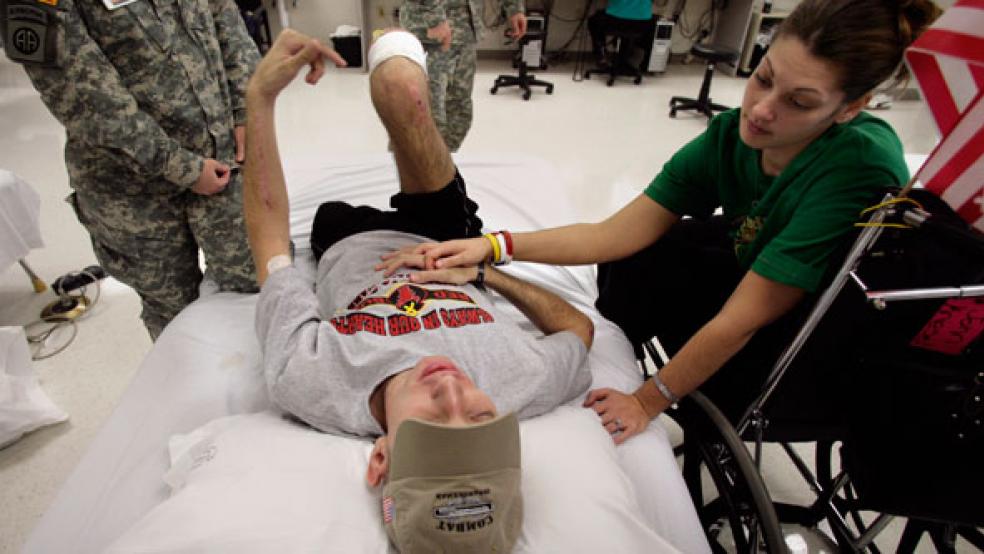A year ago, Congress passed a more than $16 billion overhaul of the scandal ridden Veterans Affairs Department that included a solemn vow: if veterans couldn’t get timely treatment from one of the scores of VA health centers across the country, they could turn to a private doctor or hospital for assistance. Shame-faced government administrators vowed that would never happen again.
To help the beleaguered agency, Congress allocated $10 billion for the “choice card” program, which allowed tens of thousands of veterans to get private treatment as part of the Care in the Community Program. Demand proved so great that VA had to tap funds from other accounts to keep the effort going and now may have to shut down the program, and shutter some hospital operations, unless Congress authorizes a major transfer of $3 billion from another part of the agency’s budget.
Related: Congress Moves to Give VA More Firing Power
Sounds like a relatively simple budgetary move to make – but not when it falls to Congress to authorize.
House Republican leaders have decided to link the new VA budget authority to the star-crossed highway funding bill that is being batted about between the House and Senate and may not see a permanent solution until later this year. Congress is the master of complicating issues by tying them to grossly unrelated measures, and veterans are being treated to this recurring spectacle.
Within the three-month highway extension bill the House plans to take up on Wednesday “we will also deal with the shortfall in the [Veterans Affairs] when it comes to funding," House Majority Leader Kevin McCarthy (R-CA) said Tuesday during a Capitol Hill press conference.
The GOP measure lets the VA shift roughly $3.4 billion to the department’s Care in the Community Program.
The House’s proposed three-month bill expires October 29. But the VA funding would only last until September 30, or the end of the fiscal year. The measure also directs VA Secretary Robert McDonald to inform lawmakers about the agency using the money.
The VA lobbied Capitol Hill for most of the summer for the ability to move funds around. McDonald and other top department officials warned lawmakers that the agency would have to start closing hospitals next month to make up for the looming budget shortfall.
Related: $16.3 Billion Veterans Affairs Reform Isn’t Working Yet
The VA sent a formal legislative proposal laying out its scheme to lawmakers earlier this month.
House Veterans’ Affairs Committee chair Jeff Miller (R-FL) who has accused the VA of blindsiding lawmakers with the budget gap said he was fine with the approach laid out by leadership.
“They’re both must-pass bills. It’s very appropriate. We have to get it done before we leave for the August recess and so it is appropriate to attach two must-pass bills together,” he told The Fiscal Times on Tuesday.
The transportation bills includes other provisions related to veterans, including one that would consolidate all non-VA medical providers who provide healthcare under a single effort.
The latest VA fix, which the House could vote on as soon as Wednesday and the Senate is expected to match, comes almost a year after Congress voted in overwhelming bipartisan majorities to approve a roughly $16.5 billion bill to revamp the agency.
Media reports prompted an investigation last year that found veterans had waited an average of 115 days for initial appointments at a VA hospital in Phoenix, and 40 people had died waiting to see a doctor. However, officials could not conclusively link the deaths to the long wait times.
Then VA chief Eric Shinseki resigned over the scandal and prompted lawmakers to take action to shore up the agency.





